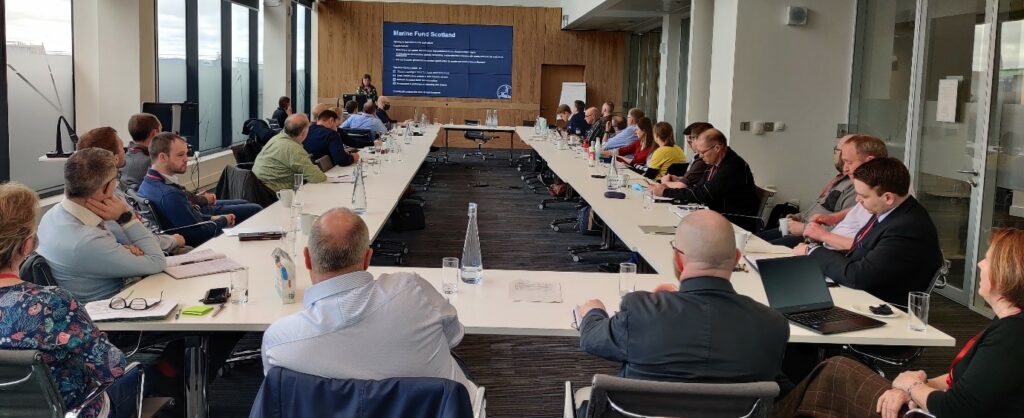

The fuel issue has hit the fishing industry hard, to the point that many UK fishing vessels are now unprofitable and are tied to the dock. Fisheries Innovation Scotland’s (FIS) recent ‘Vessels of the Future’ workshop therefore could not have come at a more appropriate time.

Developed in partnership with The Fishmongers’ Company’ Fisheries Charitable Trust this one-day workshop showcased a range of challenges and opportunities relating to legislation, alternative fuels, gear technology, electrification of boats and vessel design. Attendees also heard from seafood buyers and how they are committed to supporting the producers in their journey towards carbon net zero.
The fishing industry was comforted by the fact that seafood has the lowest carbon footprint of all protein producers, however, there was no disguising the fact that they have a long way to go and that there will be many barriers to overcome. Break-out discussions provided a space to address these issues and explore next steps. The workshop was held in Glasgow on 6th April and was attended by more than 40 experts from across the UK.
Director of FIS Kara Brydson explained: “At the workshop we took a first step towards ensuring that the fishing industry’s perspective is included in discussions on reducing vessel emissions and reaching net zero in Scotland. This was a safe space for colleagues to discuss some difficult issues, and explore ideas from around Scotland, elsewhere in the UK, and Norway. There will be a post- workshop report based on the day’s discussions to present ideas for practical and relevant ways to support our industry. We’ll look forward to making this available across industry, and to starting a wider debate about the opportunities we discussed in this workshop. This is a great first step to develop a fair and realistic way to support the catching sector transition to a lower-carbon future.”
The Fishmongers’ Company’ Fisheries Charitable Trust became a member of Fisheries Innovation Scotland at the beginning of 2022 and will be supporting FIS as they respond to the fishing and seafood sector’s most pressing needs.